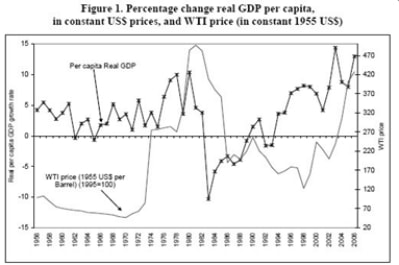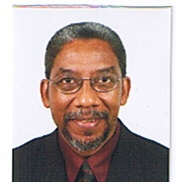 As we mark 58 years of our journey as an Independent nation, we have the opportunity to look back on and evaluate six decade-long journey towards the aspirations that filled the hearts of our citizens that night when the Union Jack was lowered for the last time and as a sovereign people, we took up the challenge of charting our own course. We must examine our present with an eye on the past 58 years and assess our progress in our nation-building project, in the important areas of the economy, politics and governance, cultural and social development, nurturing our youth and caring for our seniors, as well as caring for our physical space which sustains us. On this occasion, amid challenges of economic depression, compounded by the effects of a global pandemic almost exactly a century since the last faced by mankind, I choose to look back at the economic sphere. Into Independence Between 1956 and 1973, the Trinidad and Tobago Government formulated and implemented three Five-Year Plans, regarded as Development Programmes. In the first Development Programme, 42% of public expenditure was earmarked for infrastructure towards roads and bridges, electricity and water in descending proportion. A significant portion of the infrastructural works were to be undertaken at the Local Government level. About equal allocations were made to agriculture, health, harbours and ports, industrial development, inter-island steamers and the smallest allocation was for “labour and social services”. The allocation to Tobago was 7% of expenditure. Agriculture was touted as important “for the diversification of the economy”. Industrial development “along the lines of…Jamaica and Puerto Rico”, and tourism “with particular reference to Tobago”[1]. The “building industry with particular respect to public buildings” was described as a service industry. Allocations were made for primary and secondary education and building of a teachers’ training institution. The “provision of welfare services and essential amenities for the workers on the job” was described a major element of the Development Programme 1958-62, leading up to Independence. The provision of housing, water and health facilities with development of recreation grounds and development of facilities for youth groups and community organisations were all identified. The objectives of the Second Development Programme 1964-68 were “to change the structure of the economy…achieve a satisfactory rate of growth…and to provide productive employment for the increasing labour force”. The basic assumption was “that the rate of growth of the production of crude petroleum would decline…. Subject ...to satisfactory results of the exploration efforts….on the east coast”. The “main long-run objectives” stated in the Third Development Plan 1969-73 were:
Returning to this initial period of Five-Year Plans permits assessment of that experience in our development thrust. Firstly, it is noteworthy that after 1973, the end of the third such plan, the concept and practice of long-term planning was largely abandoned with the emergence of the first oil boom in the year 1973. The next attempt at long-term planning by Government was in the development of Vision 2020 in the first decade of the 21st century. Secondly, several of the objectives stated in those early Five-Year Plans remain largely the unfulfilled promises of Independence that fuelled the discontent that led to the 1970 Revolution and which remain what appear to be illusive goals up to the present. The illusive diversification of the economy away from hydrocarbon dependency, the unchanged structure of the GDP contributions of the various economic sectors, the unfulfilled dreams of a striving tourism sector, strong agriculture and elimination of ‘external decision-making’ and insulation against external shocks – all of these continue to evade the success columns of our Independence experience. Thirdly, the First and Third Plans were authored by the solo effort of the Premier and Prime Minister. While the Second did include a process of consultation, “the overall direction of policy remained with the Prime Minister”. Similarly, in the much later Vision 2020 plan, there was widespread involvement in the initial analysis and planning phases, but implementation remained the province of the Prime Minister and his Cabinet. Unfortunately, these planning efforts, led by the occupants of high offices, have failed to include the broadest participation in the preparation of such plans or in the execution and evaluation where some consultation was permitted. Given the current state of our economic landscape, are we satisfied? After 58 years, in the true ‘spirit of Independence’, given the current exhortations to unity and working together to solve our problems, can we do things differently to ensure that we do not have to return to the same considerations that have occupied our concerns for development at the end of the 6th decade and beyond? New initiatives from the citizens and their organisations are called for. Clyde Weatherhead A Citizen calling for the Reinfusion of the Spirit of Independence. 29 August 2020 [1] Quotations from the pages of Forged from the Love of Liberty (1981)  The results of the GE2020 are on hold possibly for a couple of days. The PNM has claimed victory with a reduced majority from 23-18 to 22-19 in the Parliament. Significantly, they have not been given a Special Majority in Parliament by the electorate so they can exercise power with impunity. Neither side has gotten the outcome they wanted from these elections. The UNC is asking for recounts in 3 constituencies hoping to snatch some more seats and Government from the PNM. The PNM has repeated its intention to file an Election Petition to try and snatch 1 seat from the UNC. They cannot do otherwise. These gatekeepers of the status quo exist for the purpose of trying to gain political office or hold on to it. However, those episodes turn out, the result will be that either side of the PNM-UNC political monopoly will occupy the positions of power with a narrow majority to the Government side. Our society is in a dire situation of crisis in its economy and fiscal matters. There is a deep crisis of the politics in which the power to deprive is used to keep the body politic out of political affairs and decision-making. We are in a serious social crisis which includes the unrelenting scourge of violent crime continues to threaten the safety and security, and lives of all citizens. We have to cope with the presence of the COVID-19 pandemic. The education system is in need of urgent overhaul to be able to produce the kind of citizens our situation requires. The outcome of these elections regardless of which of these two parties forms the Government will bring NO solution to the chronic and ever-deepening all-round crisis in which our society is submerged. Neither of these gods of plague can cure the ills of this society. The Crisis of Governance and Politics will only get worse. This electoral process has revealed once more that it offers no real choice to the Electors and only decides which of the monopoly parties becomes the Government. To those 70 candidates who attempted to offer us a choice in these elections and different voices in the Parliament, our thanks. You must now thoroughly analyse this experience and examine the entire electoral and political processes of this society and draw appropriate conclusions. You must understand correct the errors and shortcomings of this effort. You must continue to fight for the Democratic Renewal of the electoral and political processes for the sake of the People and the future of the Society. Opting out or giving up in the fight to provide effective Parliamentary representation and other voices there and make Government accounting to Parliament Real is not an option. We, the People, Must Now become the Governance Observer Mission and Hold All those elected or appointed to positions of Power to Account. As citizens, we must act by being constantly vigilant, defending our Rights against incursions of any kind, safeguarding and strengthening our unity and understanding and getting involved in the political affairs of the society. We must build a citizens’ non-partisan political organization to achieve having a real say in governance and all matters affecting the nation and the People. In this period of unprecedented crisis, what is needed is a governance of national unity and participation, not the unbridled rule of a privileged sectional interest. Clyde Weatherhead A Citizen Fighting for Democratic Renewal 11 August 2020  We are just hours away from a most important decision. As we entered this last week before polling day, the 2 so-called major parties with the support of media only too willing to accept the lucrative business of ‘paid political advertisements’ and heavy social media traffic, have created the impression that on August 10, the Electors are faced with nothing new. The impression is created that this election is more of the same – the same choiceless democracy in which we are to decide nothing other than which side of the aisle, the red and yellow of the political monopoly are to occupy from August 11. What’s different about GE2020 In these 41 elections to appoint Parliamentary Representatives for the next 5-year term, there is a total of 150 candidates - 80 fielded candidates of the ‘major parties’ and another 70 candidates fielded by 19 other political parties, together with 4 independent candidates. For the first time in a long time, voters are faced with a real opportunity to move beyond an ‘either or’ possibility of representation in the Parliament. On occasions like 2007 with a ‘third party’, the possibilities were more apparent than real. Once the third-party candidates were contesting as such and seeking to displace both ‘traditional parties’ from Government, the possibility of a different voice was not possible given our electoral process. In 2020, the large number of ‘other’ candidates represent many different points-of-view and the real possibility of providing different voices in the Parliament despite the system. Inevitably, in this situation, either red or yellow may form the Government. However, if some of the 70 other candidates are elected in at least some constituencies, the Parliamentary debates will be joined by a variety of voices. This makes for much more intense and meaningful debate on proposed legislative measures, fiscal proposals, etc. and at least some Joint Select Committees to exercise more effective oversight with Ministers before Committees with new composition. Accountability will be strengthened with independent voices. This is the major NEW that GE2020 provides. The Monopoly Fights Back Faced with this entirely new situation, and perceiving it as a threat to their comfort zone of monopolising presence in the highest forum of decision-making, the proponents of the 2-party illusion of “Representative Democracy” have reacted to protect their “property” – their ‘exclusive domain’ in the affairs of Parliament. Since Nomination Day, they have jointly carried a narrative seeking to demonise the 70 non-monopoly candidates as ‘spoilers’ whose only role is to ‘split votes’ as if the votes of the electors are ‘owned by either of these ‘major parties’. The Right of the other candidates to be elected or be elected, their Constitutional Right to a political opinion and to politically organise is treated as the privilege only of special class of ‘legitimate’ political parties or politicians. The red and yellow ‘champions of democracy’ censure anyone who dares claim the desire to offer a different voice or perspective as being only of ‘nuisance value’ or irrelevant because they do not have enough candidates to be ‘legitimate’ participants in the electoral politics. This, despite the fact the Rules of the electoral process recognize No Qualifying threshold to the title of ‘party’ or ‘candidate’. The First-Past-the-Post ‘Winner Take All’ electoral system and the exclusion of the Electors from the Selection of candidates also guarantee the status quo backed up by the big spend of the ‘major parties’ to exclude the other voices from access to the ‘traditional media’ space which should be guaranteed to all participants if this was a really Fair contest. Electors Must Make the Correct Choice The political monopoly tells Electors who you choose as your Parliamentary Representative is not important once you put either side of the monopoly in office either as Government or Opposition – the proverbial vote for a crapaud in the appropriate party tie. With the number of options available in these elections, Electors can choose which candidate they feel can best represent them in Parliament. For those who have been saying ‘no more red or yellow’, scrutinize and question every candidate and choose your best Representative. Before now, Electors have wisely denied absolute majorities on most occasions. This is your opportunity to break out of the Choiceless 2-party trap and elect a Parliament of Representatives First and foremost, not a party to form Government. The Electors must make the Correct Choice of Representative. Once you make the Correct Choice, the Parliamentarians will select the Government from among themselves following the Rules in our Constitution. The Crisis facing our nation and society calls for a different kind of Parliament, a Parliament for the National Interest; not another Parliament of Sectoral Party interests. The critical challenges facing our economy, health, our safety and very existence demands Governance of National Unity. This is an historic opportunity which Electors must seize. Clyde Weatherhead A Citizen Fighting for Democratic Renewal And for All Electors to Exercise A Real Choice with an Informed Vote 08 August 2020 |
AuthorI am a appalled at the loss of the simple skills of discussing ideas and sharing Opinions to DEEPEN ANALYSIS and UNDERSTAND DEVELOPMENTS to ARRIVE AT SOLUTIONS. Archives
April 2024
Categories |

About Clyde Weatherhead
Clyde has been involved in public life as a political activist, a trade unionist, Lawyer, Teacher and Author |
Connect With Clyde
Write to Clyde on Facebook Visit Clyde's Author Page on Amazon Go To Discussion on Facebook For Employment Relations Issues |

 RSS Feed
RSS Feed